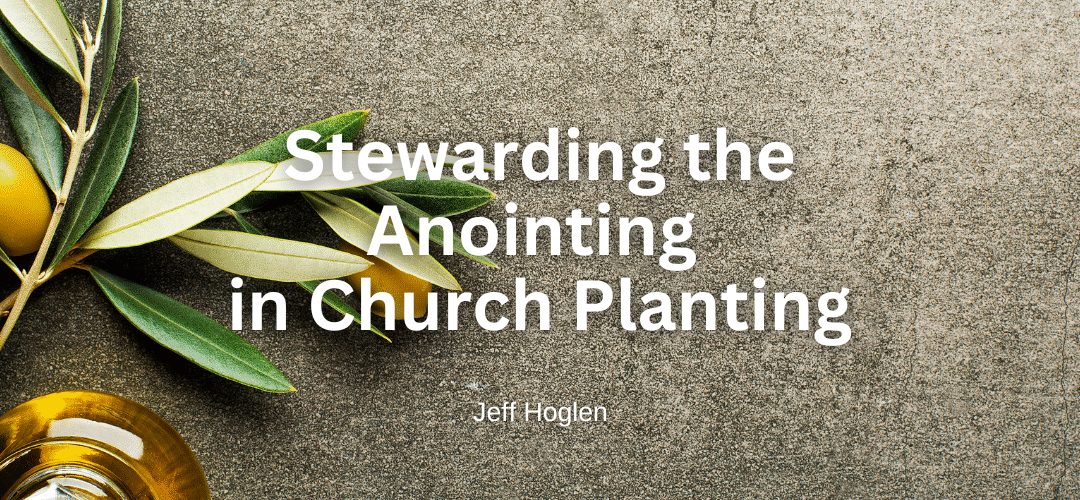Church planting isn’t just a leadership challenge—it’s a spiritual assignment. Yes, you need strategy, structure, and systems. But without the anointing of the Holy Spirit, your church plant will just be another nonprofit gathering people for good causes.
The anointing is what takes your natural grit and hustle and breathes supernatural life into it. It’s what turns a launch team into a gospel movement. But here’s the kicker: the anointing doesn’t run on autopilot. It’s a gift from God, but it’s also a responsibility.
That’s why as church planters, we have to learn not just to carry the anointing but to steward it.
What Does It Mean to Steward the Anointing?
To steward means to manage something that belongs to someone else. The anointing isn’t yours—it’s God’s. But He entrusts it to you for the sake of the people He’s called you to reach.
In church planting, this means you don’t treat the anointing like fuel for your vision board. You treat it like holy oil that has to be carried with reverence, integrity, and humility.
Four Ways Planters Can Steward the Anointing
1. Protect the Vessel
You are the vessel. Your character matters more than your charisma. If you don’t guard your integrity, the cracks will eventually leak out the very oil God poured in.
Private obedience sustains public influence. Don’t let the demands of planting squeeze out your devotion. Protect the vessel, and the anointing will keep flowing.
2. Stay Dependent on God
Church planting has a way of exposing whether you really depend on God or just on your grind. You’ll face financial shortfalls, empty rooms, and moments when nothing seems to be working.
That’s when you’ll either fake it with hustle or fall to your knees in fresh surrender. The anointing thrives in dependence. Don’t assume yesterday’s faith is enough for today’s fight. Seek Him daily.
3. Cultivate Prayer and Presence in the Plant
If you want a Spirit-empowered church, it has to start with a Spirit-dependent planter. Prayer isn’t a side project—it’s the lifeblood of the mission.
Build prayer rhythms into your life and your launch team. Saturate meetings, services, and decisions in worship and intercession. When the culture of your church is formed in prayer, the anointing won’t just rest on you—it will mark the whole church.
4. Serve with the Oil, Don’t Perform with It
The anointing isn’t a stage trick to wow people into joining your church. It’s not spiritual hype, emotional manipulation, or a clever way to fill seats. The anointing is a gift from God to serve people and glorify Jesus.
When you plant a church, it’s tempting to feel pressure to “make it happen.” To impress the launch team. To deliver the best sermon they’ve ever heard. To make Sunday feel bigger than your budget and volunteer base allow. But when the anointing becomes a performance, it loses its purity.
The anointing flows most powerfully when it’s used to serve. Jesus, the Anointed One, didn’t strut around showing off His power. He washed feet. He healed the overlooked. He wept with the broken. He multiplied bread for hungry stomachs, not applause.
For church planters, this means:
-
Preach to feed people, not to prove yourself. Don’t write sermons that flex your knowledge or creativity—write sermons that nourish souls.
-
Lead for their growth, not your ego. Numbers matter, but they’re not the ultimate measure. Steward the people you do have with the same care you would if you had thousands.
-
Stay available off the stage. The anointing isn’t just for the microphone. It’s for hospital rooms, coffee shop counseling sessions, and late-night texts from struggling families.
Here’s the heart check: If the anointing on your life ever becomes about building your brand instead of building His kingdom, you’re mishandling holy oil.
The true evidence of stewarding the anointing isn’t in how impressive your services feel—it’s in how much your people look more like Jesus because you’ve served them with the oil He entrusted to you.
Why This Matters:
Church planting is spiritual warfare. You’re not just starting services—you’re invading darkness. Without stewarding the anointing, you’ll burn out on effort or get crushed by opposition.
But when you protect the vessel, stay dependent, cultivate prayer, and serve with humility, the anointing becomes the fuel that sustains the mission. And that’s when the church plant stops being “your idea” and starts becoming God’s movement.
For more articles and resources: www.churchplanting.com
For books by Jeff Hoglen, visit: Books – Jeff Hoglen

